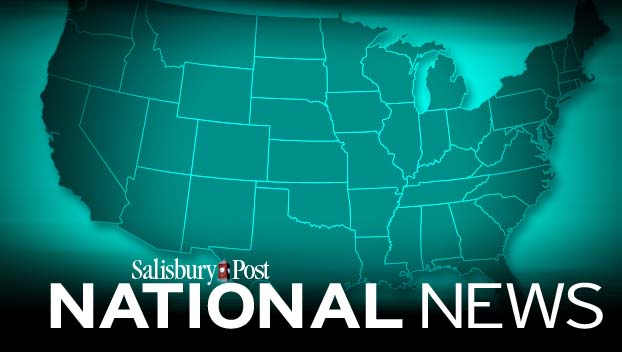US vaccine drive complicated by first, second dose juggling act
Published 12:00 am Wednesday, February 10, 2021
By Candice Choi and Marion Renault
Associated Press
The U.S. has entered a tricky phase of the COVID-19 vaccination effort as providers try to ramp up the number of people getting first shots while also ensuring a growing number of others get second doses just when millions more Americans are becoming eligible to receive vaccines.
The need to give each person two doses a few weeks apart vastly complicates the country’s biggest-ever vaccination campaign. And persistent uncertainty about future vaccine supplies fuels worries that some people will not be able to get their second shots in time.
In some cases, local health departments and providers have said they must temporarily curb or even cancel appointments for first doses to ensure there are enough second doses for people who need them.
Nola Rudolph said she struggled to book appointments for her 71-year-old father and 68-year-old mother, who live in rural upstate New York. Everywhere she looked within driving distance was booked.
“Seeing they were eligible, I was elated,” she said. “Seeing they were in a dead zone, I went from very hopeful to hopeless again.”
She was able to arrange a second dose for her father but has not yet been able to find a slot for her mother. “It’s like going around in a circle.”
For about the past month, the U.S. has administered an average of 900,000 first doses each day, according to data from the Centers for Disease Control and Prevention analyzed by The Associated Press. Now many of those people are due for second doses, and the average number of Americans getting second shots hit an all-time high Tuesday — 539,000 per day over the past week.
The increasing demand for second doses comes as the Biden administration is taking steps to boost the supply of doses.
White House COVID-19 coordinator Jeff Zients announced Tuesday that states will see their allocation of doses rise to 11 million per week beginning next week, up more than 2 million weekly doses since President Joe Biden took office.
Since the vaccine was authorized in late December, about 33 million people in the U.S. have received shots.
“It’s really important and critical to recognize that there are still not enough doses to go around,” said Dr. Nirav Shah, director of the Maine Center for Disease Control and Prevention.
So far, about 10% of the U.S. population has received at least one dose of the vaccine. About 3% has received both doses, the AP analysis showed.
Across Los Angeles County, health officials say limited supplies mean the majority of vaccinations this week will be for second doses. In the state’s Napa County, some appointments for first doses were canceled last week to ensure there would be enough for second doses.
“We’re getting a lot of the questions from community members asking, ‘Is my second dose in jeopardy?’ And right now, we don’t have an answer because it’s all dependent on the inventory that comes in from the state,” said Alfredo Pedroza, a county supervisor.
Both COVID-19 vaccines being distributed in the U.S. require two shots a few weeks apart to maximize protection. For Pfizer, the doses are supposed to be three weeks apart. For Moderna, it’s four weeks. But if needed, the booster be delayed for up to six weeks, according to the CDC, which updated its guidance late last month.
State and local health officials now emphasize that extended time frame in public messaging to alleviate worries that people might not get their second shots on time.
Federal officials have said they are confident there will be enough doses to ensure people get their second shots.
Fueling the concerns in some places is the difficulty of booking the second dose. Although many places schedule the booster when the first shot is given, others ask people to schedule them later on because of logistical issues.
Tanny O’Haley is 64 and has Parkinson’s, but he isn’t eligible for the COVID-19 vaccine in Los Angeles County, where he lives. He was able to get a first dose when he accompanied his 69-year-old wife to her vaccination because the site had a leftover shot.
O’Haley has not been able to schedule his second dose despite numerous calls to local officials and the county health department. He plans to try again when he brings his wife to her second appointment on Wednesday.
“The whole experience was pretty awful,” O’Haley said.





